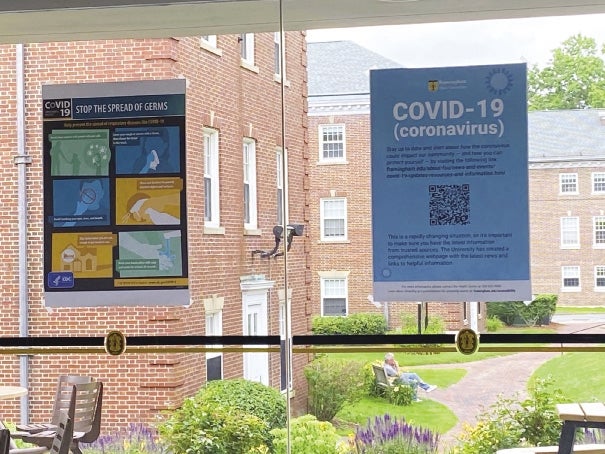Some freshmen at Worcester Polytechnic Institute will spend the fall living at a hotel just off campus. Clark University and Framingham State University have plans in place to isolate students in their dorms while awaiting coronavirus test results.
Get Instant Access to This Article
Subscribe to Worcester Business Journal and get immediate access to all of our subscriber-only content and much more.
- Critical Central Massachusetts business news updated daily.
- Immediate access to all subscriber-only content on our website.
- Bi-weekly print or digital editions of our award-winning publication.
- Special bonus issues like the WBJ Book of Lists.
- Exclusive ticket prize draws for our in-person events.
Click here to purchase a paywall bypass link for this article.
Some freshmen at Worcester Polytechnic Institute will spend the fall living at a hotel just off campus. Clark University and Framingham State University have plans in place to isolate students in their dorms while awaiting coronavirus test results.
Dean College in Franklin said it would hold classes on campus, before reversing itself amid rising cases nationally. College of the Holy Cross then did the same, about three weeks before classes were set to begin on campus.
Assumption University is breaking its fall semester into two parts, allowing onto campus for the first half only freshmen and seniors on campus for the first term, along with students who live outside the Northeast, including international students. The first day of classes has been moved up to Aug. 17.
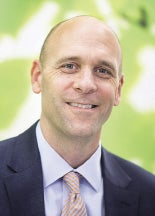
It’ll be a semester quite unlike anything Central Massachusetts has seen before, and one requiring colleges to balance safety during a pandemic with a hopeful return to somewhat normal operations.
So much is up in the air colleges are generally still not sure exactly what the semester will look like, even as few days remain until classes are supposed to begin.
“I’m not putting dates on anything,” said James Vander Hooven, the president of Mount Wachusett Community College in Gardner. “If we go through a big effort to communicate a plan to just change it nine days later, the confusion and lack of clarity is going to hurt.”
No athletics, fewer residents
Changes this fall will be clear nearly anywhere you can look on a local college campus.
No Central Massachusetts college will play fall athletics, and masks will be required in common areas including classrooms. Plexiglass dividers will be found in libraries, dining halls and classrooms. Anna Maria College in Paxton has removed couches from common areas and closed shared kitchens. Fitchburg State University has removed physical copies of course books because of sanitation standards.
Dining on campus will look different. Anna Maria will partner with OpenTable so students can make dining hall reservations and maintain social distancing. Fitchburg State will serve food in dining halls for take-out only.
Move-in day doesn’t start until Aug. 21 at Nichols College in Dudley, but the school allowed students who live close to campus to drop off their belongings in their dorm rooms starting Aug. 10 to avoid crowding, but with limitations of only one other person helping and for just an hour. At Clark, move-in is spread across a whole week.
Nichols will limit classroom capacity to no more than half, switching students in and out between in-classroom participation and online.
Dorm living – such a major piece of college life for those staying on campus – will look very different.
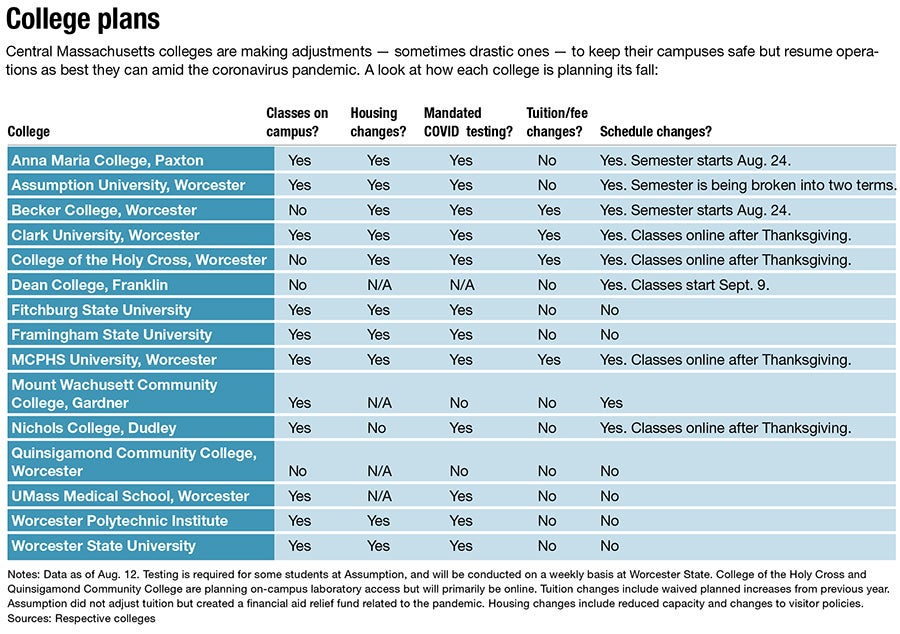
Framingham State University, for example, is limiting its dormitories to 65% capacity, and Worcester State University is knocking down its residential capacity from 1,600 to just over 1,000. Fitchburg State is reserving traditional rooms for single occupancy only, while suites will have no more than two residents.
Assumption is eliminating three-person dorm rooms and reducing on-campus capacity from roughly 1,600 students to between 900 and 1,000. WPI will house about 185 first-year students at the Hampton Inn & Suites just off campus.
Little normalcy
Most Central Massachusetts colleges will have at least some courses on campus, which may be the most normal thing about the semester, even if fewer students are in class, or the class is sometimes actually online, not in person.
Assumption is breaking the fall semester into two terms after hearing from students that taking five classes online at once in the spring was too much, said Greg Weiner, the school’s provost and academic vice president. Instead, students will take two classes one semester and three the other.
“It’s more intense, but students can focus more closely on fewer subjects at one time,” Weiner said.
Some colleges are adjusting their tuition and fees for the semester in recognition the education may not be quite the same. That list includes Holy Cross, Becker and Clark. Holy Cross said it will eliminate a planned tuition hike for the upcoming year and waive an expected $2,400 student contribution to its financial aid funds.
“We typically plan for this amount to come from student summer earnings, and we recognize that many students are unable to secure summer employment this year,” Holy Cross said in an online guide for the semester.
Others are keeping prices the same. Nichols, for example, said it would maintain prices because of the costs associated with preparing the campus for a safe reopening, including testing and classroom technology. But the college is waiving the comprehensive fee for the fall for all students, and every student who completes eight full-time semesters at Nichols is being offered a ninth semester tuition-free, which can be used for undergraduate or graduate courses.
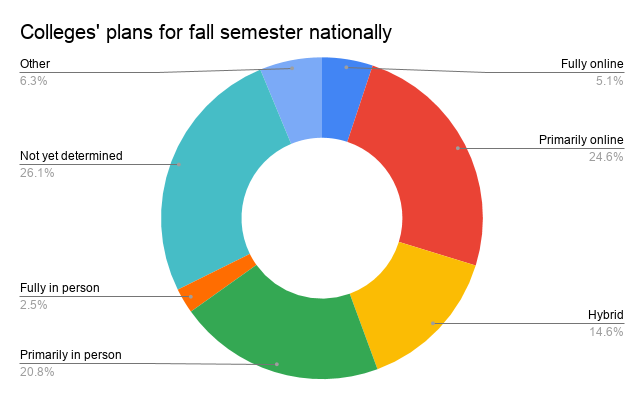
Fitchburg State, which isn’t adjusting costs, has said it anticipates at least $2 million in costs related to health and safety measures, in addition to $3.5 million it refunded in the spring when residents halls were forced to close and classes moved online.
Colleges are making adjustments to schedules not just in how classes will be held, but when.
Nichols, for example, will hold classes on Labor Day and Columbus Day, two Mondays during the semester everyone would normally have off. Anna Maria and Clark plan to begin fall semester classes on Aug. 24, and Clark for students to move out by Nov. 22. Clark’s spring semester wouldn't begin until Feb. 22. The later start date will push graduation in the spring roughly a month later than normal: June 20.
The few weeks on campus after a Thanksgiving break normally devoted to wrapping up the semester and taking finals won’t take place at all on campus at MCPHS University, Clark and Nichols.
Testing & contingency planning
College students are used to taking tests, but not this kind. Most Central Massachusetts colleges will require coronavirus testing for the start of the semester.
Nichols expects to conduct about 350 tests per day and will pick up the cost of $25 to $30 per test. Fitchburg State is committing to testing all students and employees at the start of the semester, as well as randomized samples each week.
Assumption is having employees and students report their temperatures daily through a mobile app. Students have been instructed to pack a thermometer to bring with them to campus.
Anna Maria and Clark are among those who’ve made contingency plans for isolating and delivering food to students who’ve tested positive. Anna Maria gave students the ability to take classes online only instead of in the hybrid online and in-person format if they filled out an application for approval first.
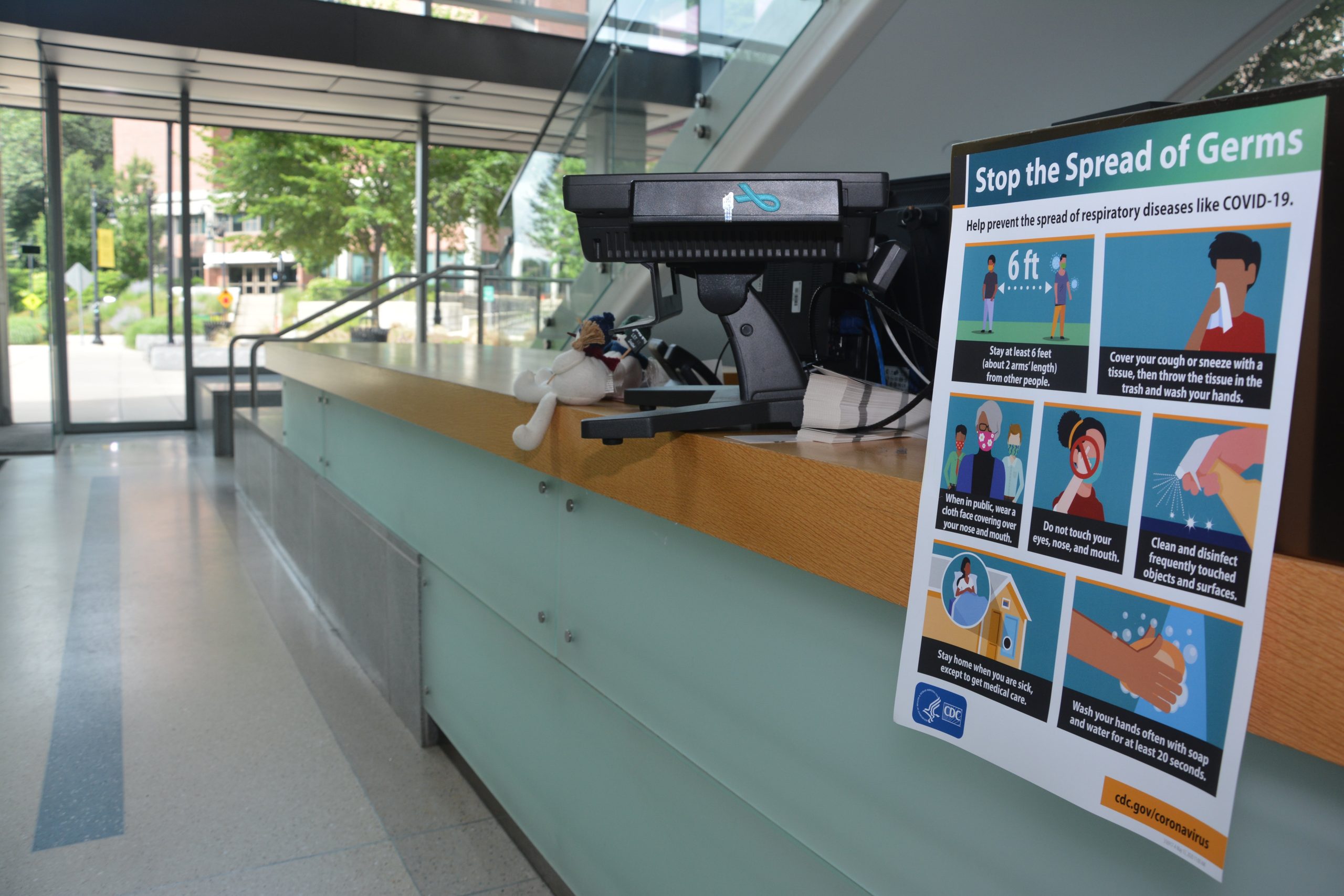
The area’s community colleges, which don’t have dorms, have varied slightly in their approach to courses this fall.
Quinsigamond Community College in Worcester will hold all classes online except for a small amount of laboratory work. Mount Wachusett Community College in Gardner will hold a majority of courses online, but not all.
QCC makes it clear it doesn’t want students in its buildings unless it has to be. “Please do not come to campus,” it says in a message to new students on its website.
QCC President Luis Pedraja said in a podcast with the Worcester Business Journal in July the college’s plans were complicated by the fact commuter students would be coming and going between campus and their families or jobs.
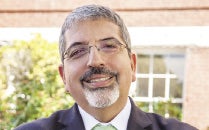
“They're going to their home and their jobs or whatever social environments where they are, and then they're coming in,” Pedraja said of commuter students normally. “They're working adults in many cases, or parents.”
Mount Wachusett, whose guide to reopening spans 43 pages, estimates it will hold about 85% of its classes online. Classrooms will be empty for an hour in between classes for cleanliness considerations, but is one of few not planning to require or offer testing. Instead, the school is reinforcing expectations and policies, and has an agreement in place with Heywood Hospital in Gardner to utilize its services if needed, Vander Hooven said.
“We need to be hyper focused on that,” Vander Hooven said of emphasizing health policies, adding testing could still bring infected students to campus. “The whole concept of having people tested at the door will not change that they were at your door.”
